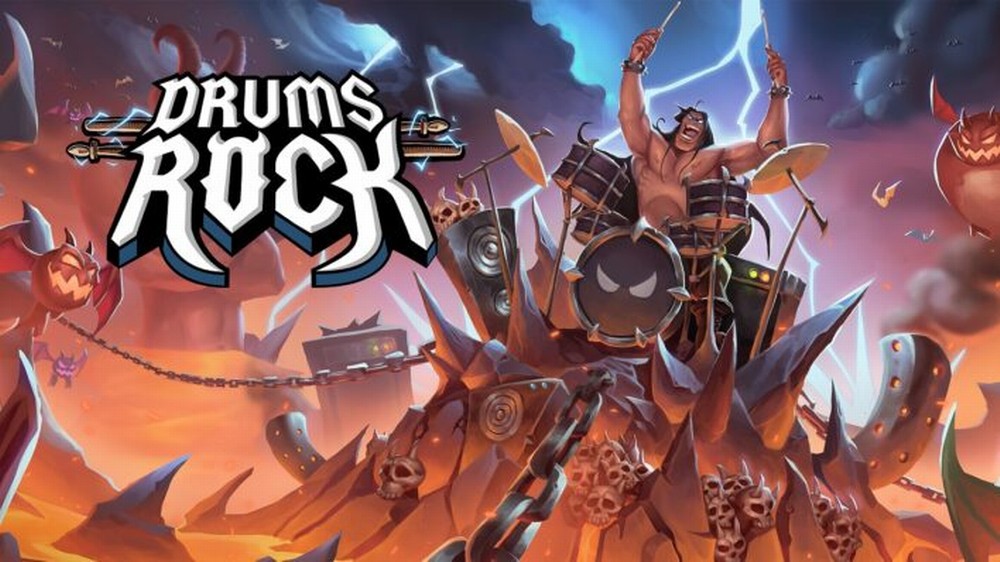Is the PC Being Replaced by Consoles?
A look at the future of electronic gaming.
Originally Published on April 6, 2000
With the release of Dreamcast late last year and the imminent release of several new high-performance home consoles this year and next, I recently had to ask myself, “Is my PC being replaced by my Dreamcast?” And if it is, is it just me or is this a global trend.
I then decided to go back over all my software purchases since the Dreamcast came out. Since that infamous day of 9/9/99 I have added 19 DC titles and 11 PlayStation titles to my permanent console game library. The PC numbers fare much lower. In that same seven-month period I purchased 14 PC titles and returned all but 6 due to complications in either installing or keeping the software running reliably. Also in that same seven-month period I upgraded my computer (or various parts) four times to keep up with technology. The total cost of these upgrades would have bought two home console systems and probably a few games.
Now I’m not trying to start or even fuel any existing Console vs. PC flame war but lets look at the facts for a moment and see where we are today and where we are going tomorrow.
The average console system available today costs between $99 and $200. To purchase an adequate PC system to play similar or even the same ported titles would cost you over $1000 and that’s being conservative. Some of the newer 3D accelerator cards cost as much as a complete home console system.
Software is usually a few dollars more for console games, which may strike you as unfair at first. After all, PSX and DC titles cannot be copied (easily) so developers don’t have to inflate their prices to compensate for piracy. But what is overlooked is that there are still more PC’s out there than consoles, for now. Since developers have a smaller target audience they have to charge more to recoup their expenses and make enough profit to make your next game.
So let’s talk about ease of use. What can be easier than popping your DC or PSX CD or N64 cartridge into the console and firing up a game with no installation time, no driver issues, and generally no problems at all. When was the last time you had to “download the latest drivers for your PSX video card”, or “install the latest update patch” for your Dreamcast title? It just doesn’t happen and the reason why is “Closed Architecture”.
All of the current consoles and even the ones on the horizon all benefit from a closed-architecture system. In simple terms, this is basically a preset configuration of hardware and software that is locked down when the system is designed. The benefits of such a system are two-fold. It means the PlayStation you bought in 1995 is essentially the same as the one you bought last week (aside from a few design improvements). It also means that a game you bought in 1995 will work in your machine today and a game you bought today will work in that machine you bought five years ago. Try that same philosophy with a PC title or a five-year-old computer and see if it holds true. I think not.
Software developers enjoy a closed-architecture system because they don’t have to guess at which video or sound card you have. They develop for a fixed and unchanging system, which lets the programmers focus on the game and not on compatible drivers. Sure, we all know that Microsoft’s DirectX was supposed to come along and solve all these compatibility issues for the PC, but those of us who use our PCs for games know this is far from being fully reliable. Often DirectX causes more problems than it solves.
There is something else going on in the PC software industry that is very disturbing and seems to be growing with each passing month. It is known as the “release it now and patch it later” syndrome. I could name specific titles but they will probably be patched by the time some of you read this article and you will wonder what all the fuss was about.
Programmers who design for console-based systems realize that once a game ships there isn’t much you can do to fix it after the fact short of a recall. This is why you rarely see any major bugs in console software. The most recent bad release that comes to mind was the bug in PlayStation’s Grand Turismo 2. This was a minor bug that most gamers would have never even noticed and the software manufacturer still offered to replace the defective game with a new re-mastered CD. And I’m sure all of you have heard the horror stories of all the users who got defective copies of Dreamcast titles on the release date, but even those were attributed to defective manufacturing and were promptly replaced. Despite the few random occurrences of buggy console titles, they come nowhere close to the almost inevitable guarantee that your PC program will have issues.
Currently the PC has one big perk going for it and that is the Internet and online/multiplayer gaming. Sure you can play split-screen Quake on your N64 or link a pair of PlayStations together (if you can find the extinct link cable), but nothing compares to the thrill of going up against a dozen real-life opponents in a furious session of Quake Arena or storming a terrorist stronghold in Rainbow Six. But even this PC-perk is slipping away fast as consoles come online.
SEGA was the first to offer a built-in modem in a console system. While the speed is limited to 56K and Internet content is still lacking and there are no online games available at this time, at least it is a start in the right direction. You can be sure other developers have already taken notice and are planning accordingly. Even the PlayStation 2 is rumored to have broadband modem capabilities.
You can look for a major push from SEGA this year to get you into a Dreamcast system and online at the same time. If you sign-up for a two-year subscription to the SEGA.COM Internet service you can get a FREE Dreamcast. You don’t actually get the system but rather a rebate check for $200 (which is what the system is selling for). If you already bought your Dreamcast don’t worry; you can still get the rebate and spend it on games or whatever you want – it is a check – not a gift certificate or coupon.
Why would SEGA be giving away $200? Well, if you read the fine print you will see that you are paying $21.95 a month for the next 24 months ($526.80 for those of you who forgot your pocket calculators). But once you subtract the rebate your Internet access is only $13.62 a month, which is considerably cheaper than most local and national providers. Plus SEGA is specifically designing their Internet backbone to target the needs of gamers such as chat rooms, low latency connections, etc. SEGA is even throwing in a free keyboard.
While you can certainly still connect and play future online games using your existing ISP, SEGA can only guarantee the speed and quality for those using their service – membership does have its privileges.
But why go online when there aren’t any games to play? This is all about to change. Games like Quake 3 Arena and Half-Life are currently being tweaked for multiplayer and sequels to the best sports titles ever; NFL 2K1 and NBA 2K1 will also support online play. Can you imagine 4 on 4 basketball over the net?
But even giving away free game systems isn’t enough to collapse the PC gaming market. It would take something (or somebody) as big as oh… Microsoft to do that. Enter the X-Box. Rumors have been floating around for months but the official word only came down from the Microsoft mountaintop within the past few weeks.
X-Box is real and is scheduled to obsolete everything in its path including the PC late next year. Microsoft has designed this system to be the ultimate game machine with all the power of your home computer in a tiny and affordable package that sits in your living room and connects to your TV. The X-Box features a DVD and some very impressive stats by console standards, but the 64mb of shared video/system RAM hardly stacks up to a typical PC with 128mb of RAM and a 32mb video card. So how can the X-Box hope to compete or even replace a PC?
It all comes back to closed-architecture. Developers can do a lot more with fewer resources when the system is locked down. The X-Box also features another device commonly found in most PC’s – a hard disk drive. Don’t panic – you won’t be installing games. This hard drive allows programmers to cache frequently accessed data to the hard drive and free-up the DVD for playing audio and video. It will also replace those annoyingly small memory cards and let you save games and other data you might download from the web such as the NFL rosters for the year 2002.
Developers will be quick to jump on the X-Box bandwagon; in fact several already have. Most programmers who know how to program for the PC are already X-Box experts and developing a game for the X-Box can be done on a PC rather than some expensive hard-to-find development system. Microsoft also plans to offer a lower licensing fee to developers as an incentive to develop for the X-Box.
Microsoft is also including support for online gaming including broadband Internet connections such as cable modem or DSL. The X-Box is being designed from the ground up to replace the PC as the gamers’ platform of choice and even Bill Gates isn’t ashamed to admit it. Just look at the trend Windows 2000 is taking. Everything in the PC world is starting to gear back toward business and professional apps while games are making the paradigm shift toward the living room and a system that costs a fraction of a PC.
While the PC may have two or even three good years left in it as a gaming platform its ultimate fate has already been foretold and planned for. Software developers are already slowly (yet noticeable) making the move to console systems as their platform of choice. Gamers are beginning to see the difference now that the Dreamcast is offering incredible graphics quality that rivals or even surpasses that of a 3D equipped PC. Just compare the DC version of Legacy of Kain:Soul Reaver to the same PC version on a decked-out PC system – the Dreamcast clearly wins.
Input devices and controllers are rapidly being released. Joysticks and wheels including those with Force Feedback are available for most all the popular systems and I’ve even seen a fishing rod for the Dreamcast. Keyboards are available for the DC and upcoming X-Box making them fully functional for email and chat rooms on the net. The only thing that is currently lacking for the console vs. PC debate is a good 3D-shooter controller. The ability to move around and “freelook” while strafing and sniping has yet to be replicated on a console controller, although I might add that the recently released MDK2 for Dreamcast comes very close to achieving this goal with the standard controller.
I find myself using my PC less and less each day for playing games. Aside from surfing the net and typing walkthroughs, reviews and other articles I hardly use my PC anymore. I’ve even noticed my software buying habits have changed. Six months ago when a PC title was released that I was interested in I would be the first one at the store. Now when a new PC title is released the first thing I do is see if a Dreamcast version is available or “coming soon.” If so, I will almost always wait.
There is a certain sense of satisfaction and even joy when you insert that PSX or Dreamcast CD into the system and the game starts up. There is also an equal amount of apprehension and frustration each time I crack the shrink wrap on a PC game and wonder if it will even work when I take it out of the box. This point was truly driven home the other day when I was going to go pick up Force Commander and saw that a patch was already out on the web after only 48 hours.
So, are home consoles replacing the PC? I vote YES and I don’t think I’m alone. Everyone from the system designers to the software manufactures to the gamers themselves seem to be migrating to the consoles. For the most part the Dreamcast has already replaced the PC as my primary game system and later this year when it comes time to spend $300 on a new video card so I can play “Game-X” on my PC or buy a PlayStation 2, I have a good idea where my money is going.
Mark Smith










